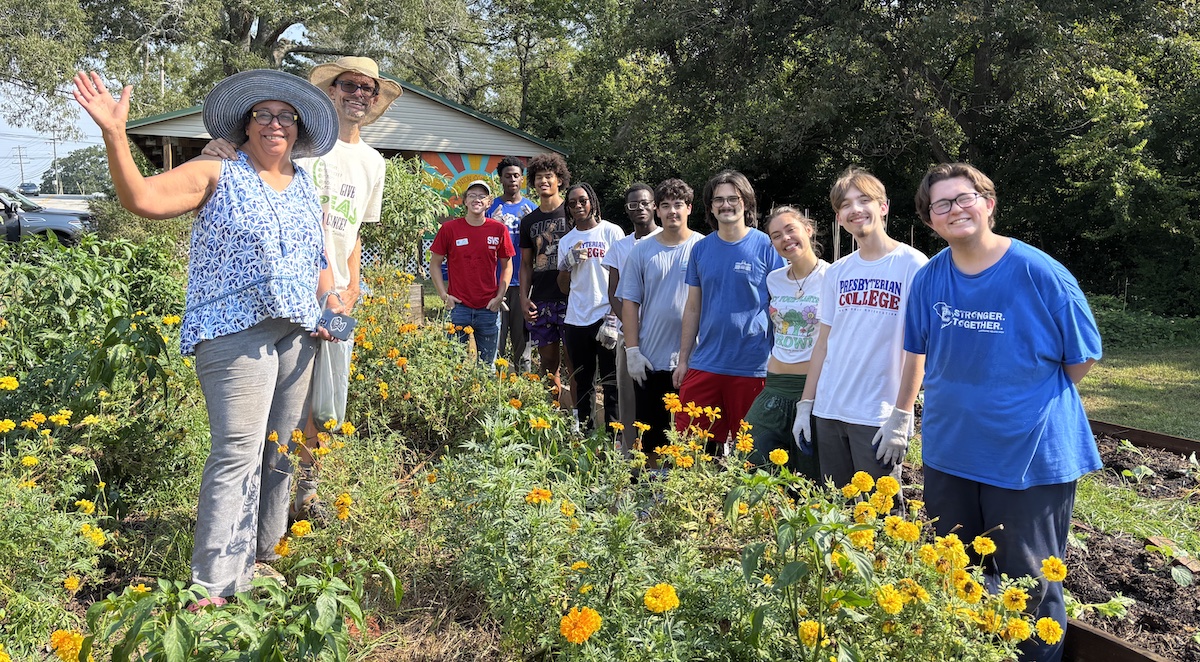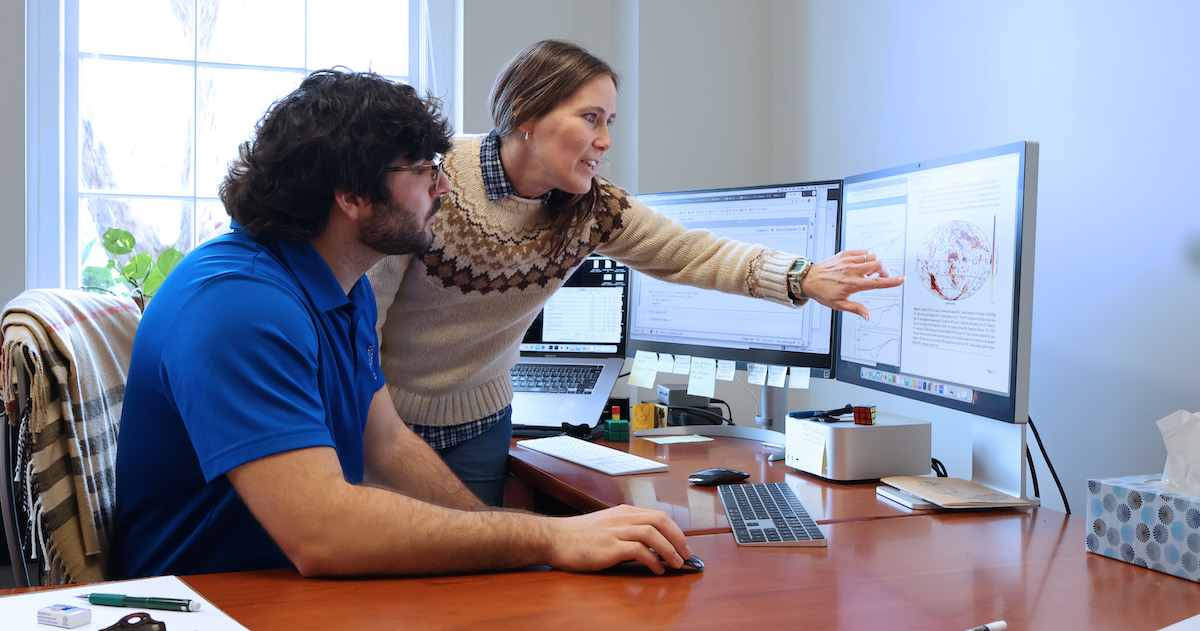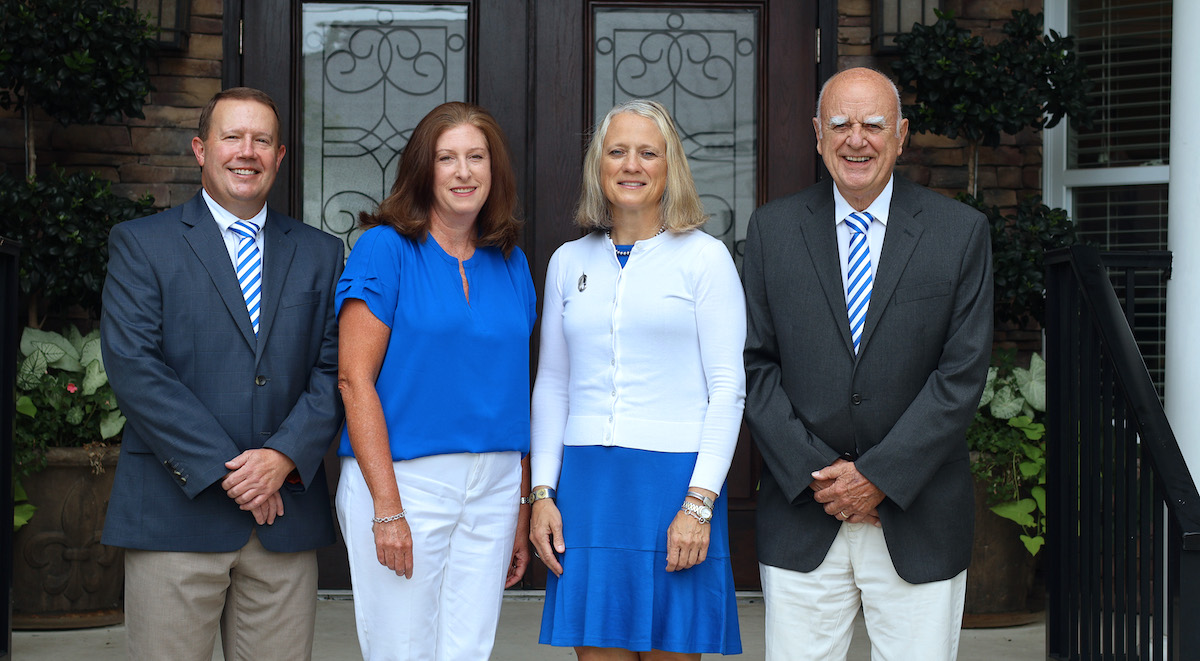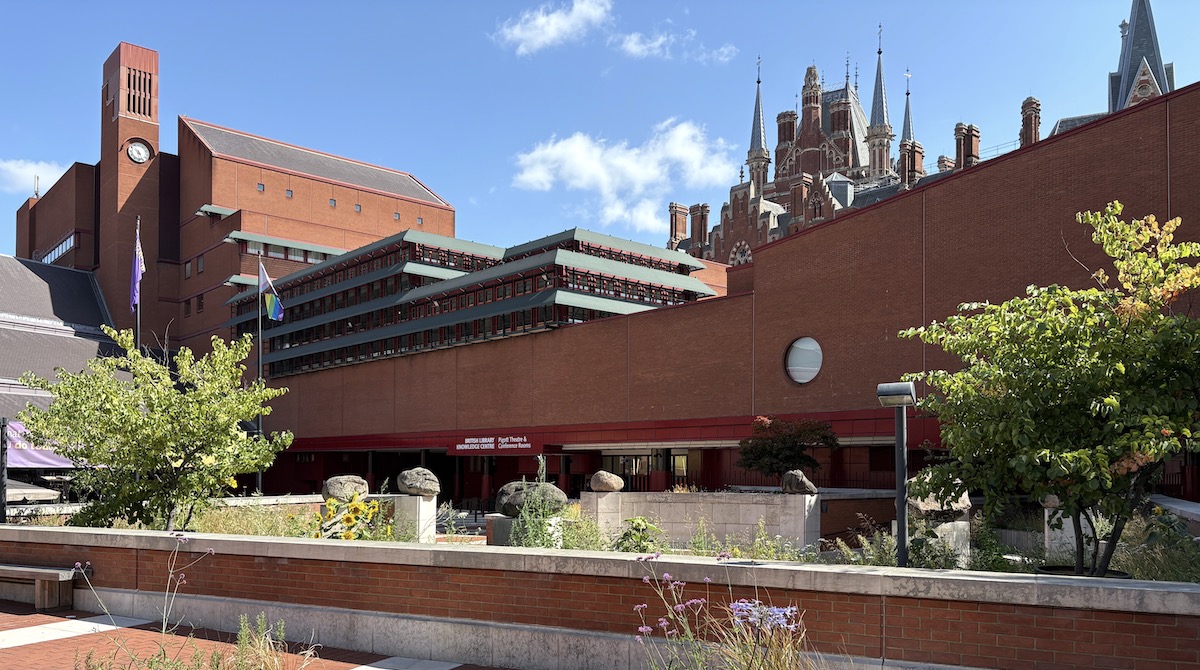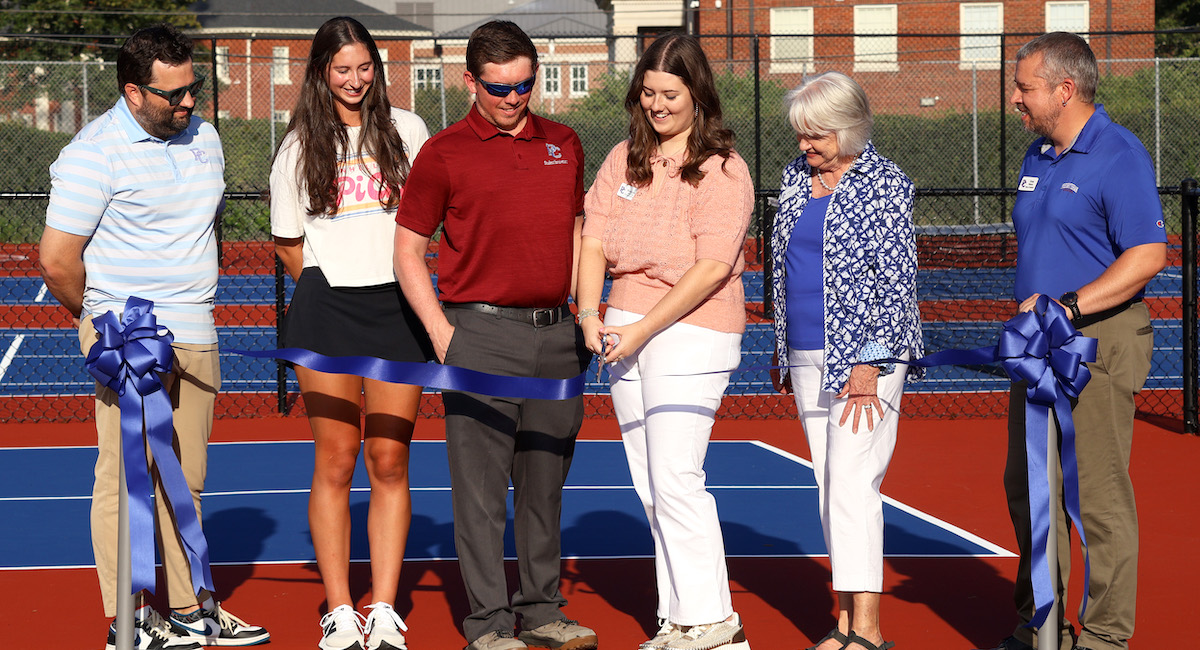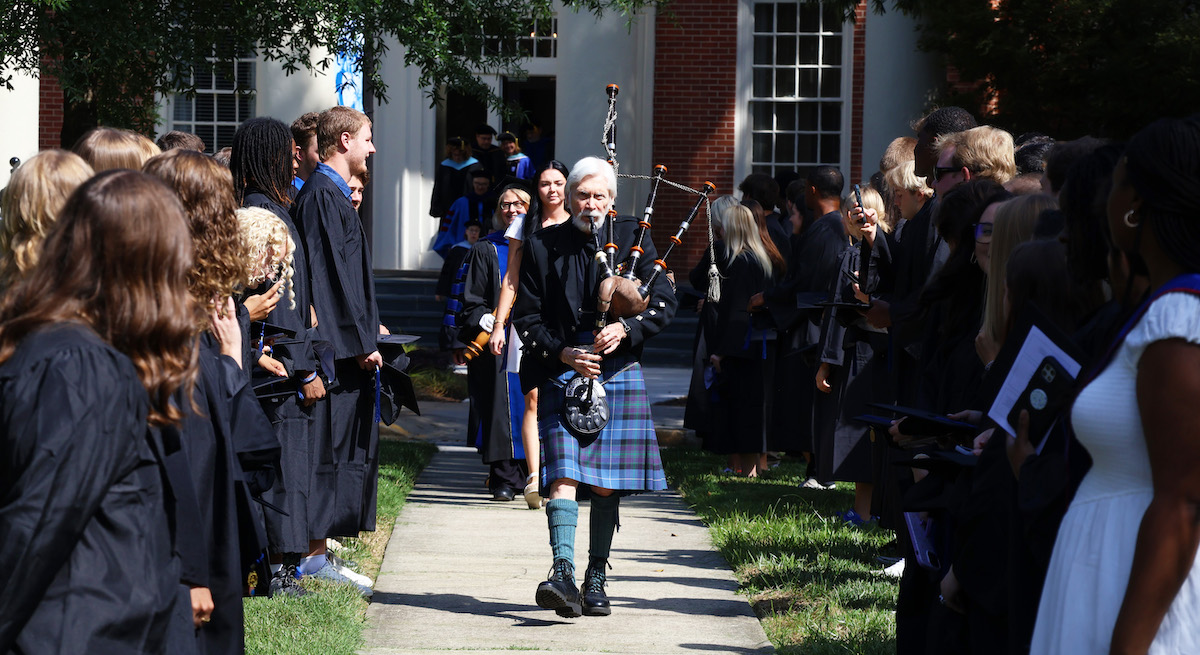Ceremony celebrates professionalism, integrity, and the call to serve
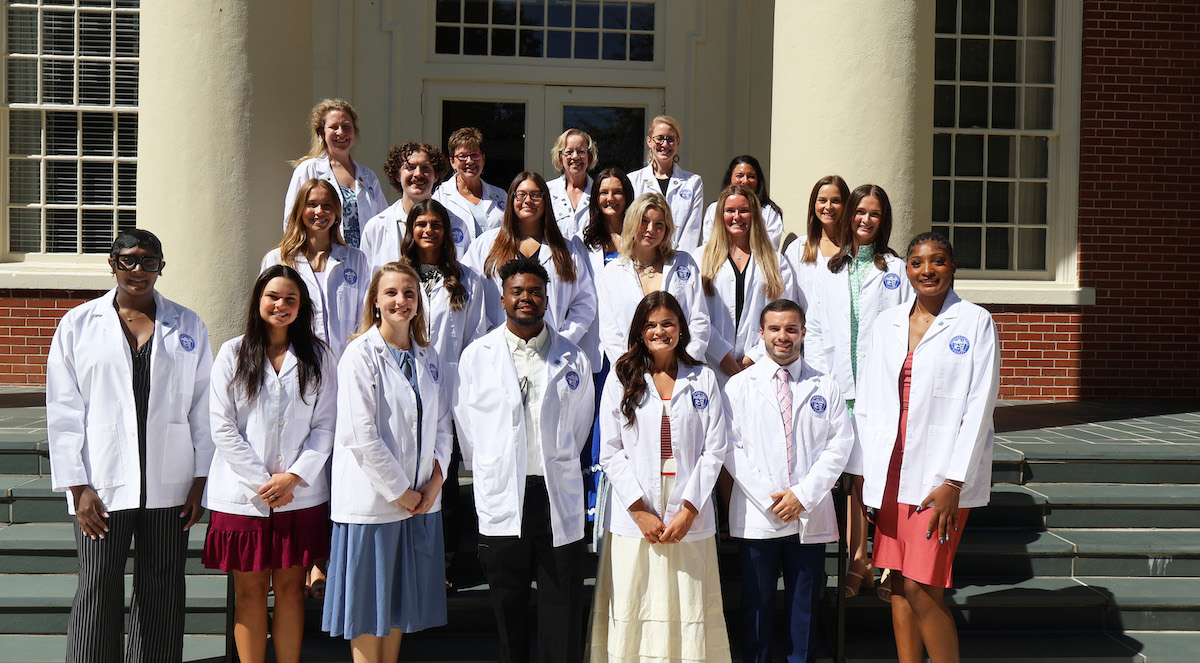
Presbyterian College welcomed its sixth cohort of Occupational Therapy Doctoral Program students at the White Coat Ceremony on Sunday in Belk Auditorium, celebrating their entry into the profession and their commitment to service, integrity, and lifelong learning.
The annual event, a cherished tradition in the program, symbolizes the beginning of students’ academic and professional journey toward becoming doctors of occupational therapy.
‘Your work is a calling’
PC president Dr. Anita Gustafson opened the ceremony by congratulating the new students and reminding them that their choice to pursue occupational therapy is more than a career path.
“Your work is a calling. A calling to make a difference. A calling to do good and important work,” Gustafson said. “And the White Coat you will receive today marks your entry into your professional academic coursework. It is the first step among many steps toward becoming a doctor of occupational therapy.”
Gustafson highlighted the program’s recent success in receiving full accreditation from the Accreditation Council for Occupational Therapy Education in 2023 with no areas of noncompliance. She credited the dedication of the OTD faculty and the college’s commitment to excellence.
“The work that you will train for fits right into PC’s motto, ‘While we live, we serve,’” she added. “Your service to others will help people become more independent or allow them to stay independent longer. I know you will make us proud.”
Integrity and professionalism
Dr. Erin McAdams, provost and vice president of academic affairs, delivered the academic welcome. She reminded students that the White Coat symbolizes more than a uniform — it reflects values that will guide their practice throughout their careers.
“Students, the White Coat that you will wear today is more than just a symbol of your entry into the healthcare profession. It signifies your commitment to the values that will guide your practice, foremost among them academic integrity and professionalism,” McAdams said.
She emphasized that integrity in education and in practice upholds the trust that society places in the healthcare system.
“Through rigorous coursework, clinical experiences, and research opportunities, our faculty will equip you with the knowledge and skills needed to excel in your field,” McAdams said. “But even more than that, our faculty will prepare you to be leaders, professional examples, and advocates who will advance the practice of occupational therapy with both compassion and competence.”
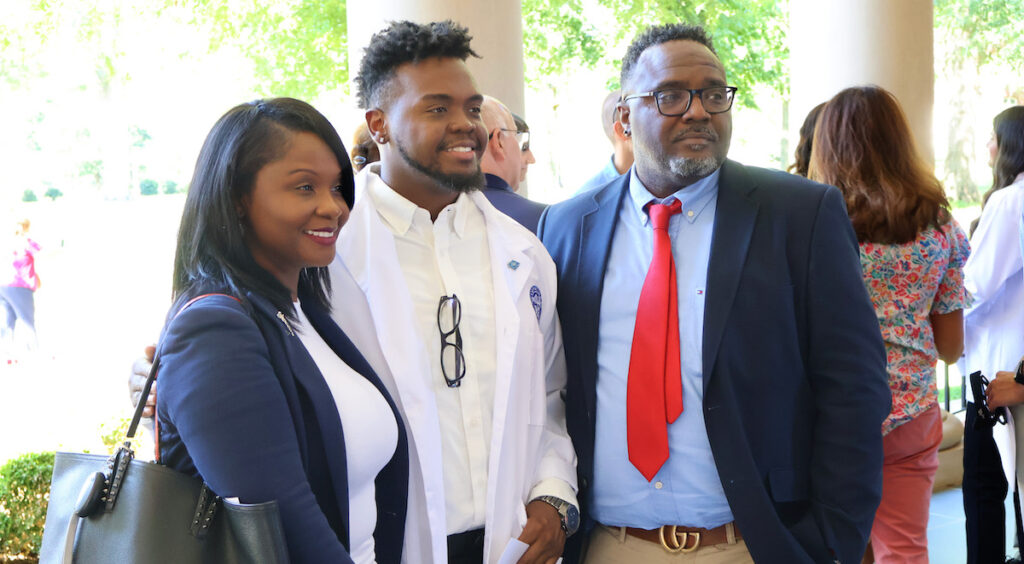
Accepting responsibility
Dr. Moni Keene, program director and associate professor of occupational therapy, explained the symbolism of the White Coat and what it represents for new students.
“The White Coat is presented to students in the Presbyterian College Occupational Therapy Doctoral Program signifying professional readiness, a commitment to advanced education, and the confidence necessary to embrace and impact the future of occupational therapy,” Keene said.
She pointed out that the program’s patch, bearing the medical caduceus, serves as a reminder of the importance of evidence-based, theory-driven intervention. The shorter length of the coat signifies students’ status as learners committed to lifelong growth.
“Your acceptance of the White Coat also indicates accepting the responsibility of entering into a community of professionals,” Keene said. “Let it serve as a reminder of our professional values: respect for others, integrity, sense of caring, and commitment to improving the lives of others.”
Keene also introduced the OTD faculty, each of whom shared an ideal of professionalism with the incoming cohort.
Integrity as foundation
Dr. Cindy Erb, associate professor and Phi Theta Epsilon faculty advisor, spoke on the importance of integrity.
“Integrity is the quality of being honest and having strong moral principles. It is a cornerstone of trust and respect,” Erb said. “It means doing the right thing, even when no one is watching. It means being truthful, not just to others, but to ourselves.”
She reminded students that patients will be vulnerable and must trust their therapists completely.
“True success is built on a foundation of integrity,” she said. “It is the guiding principle that helps us navigate the complexities of life with honor and dignity.”
Empathy and altruism
Assistant professor and doctoral capstone coordinator Dr. Courtney Addison encouraged students to wear their White Coats as symbols of empathy and altruism.
“Empathy is the cornerstone of what we do,” Addison said. “It’s about listening, truly seeing the person in front of you, and understanding their struggles. It’s the ability to stand in someone else’s shoes without judgment, and to support them through their journey with compassion and respect.”
Altruism, she explained, is empathy in action. “It’s waking up each day ready to make a difference, knowing that your actions may change lives in ways you’ll never truly see,” Addison said. “So, my challenge to you is this: be brilliant clinicians, but more importantly, be compassionate ones.”
Lifelong learning and excellence
Dr. Christine Boone, assistant professor and faculty advisor to the Student Occupational Therapy Association, shared lessons from her 21 years as a pediatric occupational therapist, weaving humor into her reflections on lifelong learning.
“I’ve spent over two decades being outsmarted by toddlers, asked very serious questions about dinosaurs, and developed ninja-like reflexes to dodge thrown toys,” Boone said. “Nothing teaches you more humble or current than being told by a four-year-old, ‘You’re doing it wrong.’”
She encouraged students to embrace growth, curiosity, and the pursuit of excellence, not perfection.
“As you put on your White Coat today, remember this isn’t the finish line. It’s the starting point of a career where learning never ends,” Boone said.
Communication and collaboration
Assistant professor and academic fieldwork coordinator Dr. Allie Turner closed the faculty reflections by speaking on the importance of communication and collaboration.
“You guys, over the next three years, will communicate with one another probably every 20 minutes in groupings, in class, and under assignments,” Turner said. “Communication and collaboration, they’re not just skills. They’re part of your calling.”
Turner reminded students that therapy is grounded in connection.
“Our voices, our mannerisms, those unspoken things — they speak to people bigger than your words,” she said. “Whether you’re teaming up with your classmates, connecting with your clients, or learning from other professionals, your ability to listen, share, and grow together will shape the kind of therapist that you will become.”
A community of support
Throughout the ceremony, students were reminded that they are not embarking on their journey alone. Faculty, family, and friends surrounded them in support, symbolically represented in the moment when each student donned their White Coat for the first time.
Keene told the new cohort that the program acts as a catalyst for learning, professional growth, and competency.
“Each member of the faculty makes a significant, individual contribution to the future of every student,” she said. “Yet we all began here, where you are today, unsure of where your journey will take you, yet confident in the future and your potential to do great things.”
Looking forward
As the sixth cohort of PC’s Occupational Therapy Doctoral Program begins its academic journey, the White Coat Ceremony marked a day of pride, symbolism, and responsibility. From calls to integrity and empathy to reminders of lifelong learning and collaboration, the message was clear: students are joining not just a program, but a profession that changes lives.
“We look forward to watching you grow and learn and become professionals who make exceptional impacts on the daily lives of the patients you serve,” Gustafson told the students. “Congratulations.”
Cohort 6
- Carly Burton
- Destiny Butler
- MicKayla Clark
- Leigha Clayton-Cornell
- Jackson Denbroeder
- Amelia Gregg
- Mary James
- Alyssa Lee
- Joshua Levine
- Tara Locke
- Ainsley Martin
- Alexander Miller
- Riley Obertino
- Marina Phillips
- Laurren Randolph
- Adriann Robertson
- Jazlyn Wilson
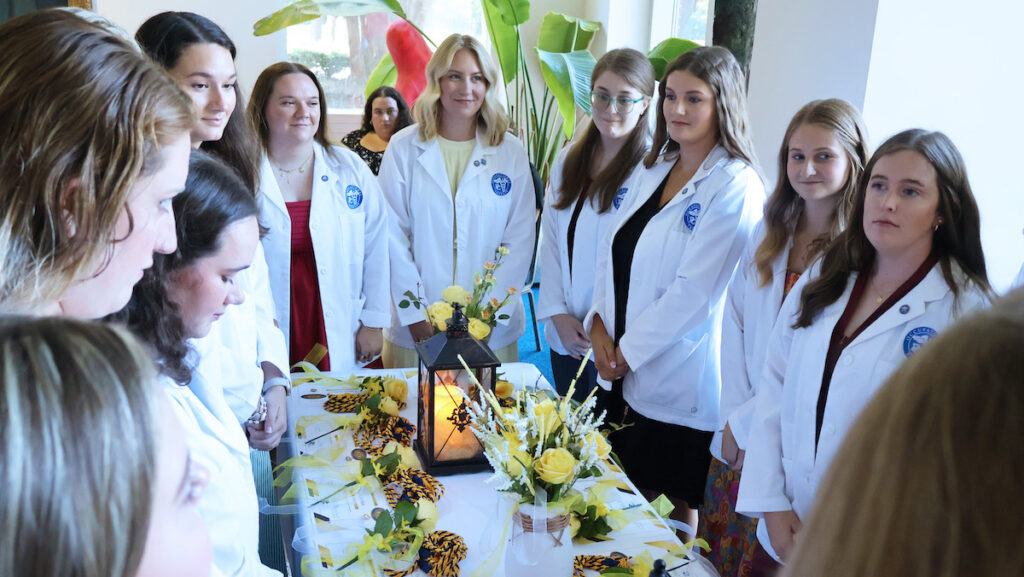
The Occupational Therapy Doctoral program also inducted new members into the Eta Alpha Chapter of Pi Theta Epsilon, the honor society for occupational therapy graduate students.
Inductees included:
- Caroline Bedenbaugh
- Jesselyn Bryant
- Abigail Compton
- Jessie Daughtry
- Mackenzie Dilworth
- Gabrielle Fontenot
- Grace Fulmer
- Madeline Gilstrap
- Brittany Hightower
- Mackenzleigh Hinson
- Ashton Holliday
- Rachel Knox
- Morgan Norris
- Rebecca O’Neal
- Natalie Pack
- Grace Ann Simpson
- Briana Viau

